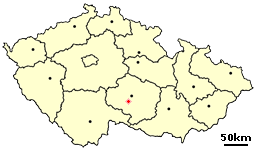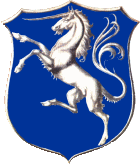Wings of Denial: The Alabama Air National Guard's Covert Role at the Bay of Pigs. By Warren Trest and Donald Dodd. Montgomery: NewSouth Books, 2001. 160 pp. $17.95 (paper). ISBN 1-58838-021-1.
Historians Warren Trest and Donald Dodd have combined to tell the story of those Alabama Air National Guard members who participated in the CIA-organized-but failed-effort by Cuban exiles to overthrow the Castro dictatorship in April 1961. It is a story for air power and Cold War historians, Latin Americanists, and those interested in the operations and politics of the National Guard.
Several themes interact: Kennedy administration blunders that helped to insure the doom of the operation; JFK's insistence that "plausible deniability" (p. 12) of United States official involvement take precedence over any necessary steps for the operation's success; the CIA's insistence on secrecy by Alabama Air National Guard participants long after the defeat and capture of Brigade 2506 at the Bay of Pigs; the lack of information given to the families of the four Alabama guardsmen shot down and killed while flying two of the unescorted B-26 light bombers constituting the assault aerial force of the invaders; and the persistence of certain family members of the dead flyers to learn what had happened. When recruited by Brig. Gen. George Reid Doster of the Alabama Air National Guard, the guardsmen were confident that the invasion would succeed and that gaining command of the air over the invasion area was vital.
Most Alabama guardsmen who participated in the unsuccessful operation blamed its failure on changes in planning, restrictions, lack of action or delayed action, and JFK himself. They emphasized the shifting of the original CIA-planned landing site from coastal south-central Cuba, with the nearby Escambray Mountains as a refuge should the invasion fail, westward to the Bay of Pigs, with its surrounding impassable swamp that precluded a refuge in case of failure. The guardsmen were unable to knock out Castro's air force on the ground because follow-up air strikes were restricted and because unmarked fighters from the American aircraft carrier Essex arrived too late to protect the exiles and the air guardsmen in B-26 bombers supporting Brigade 2506.
But many historians-and some Air National Guard veterans-contend that the endeavor was doomed before it started because it lacked direct United States military involvement with planes, ships, and troops, which JFK adamantly opposed. Lester D. Langley wrote in The United States and the Caribbean in the Twentieth Century (Athens, Ga., 1980; revised, 1985) that the "real battle was for the loyalty of the Cuban people. . . . American planners and their Cuban exiles had accepted unquestionably that Castro ruled by force and fear . . . [and that] the Cuban masses would unite behind a revolutionary movement aimed at overthrowing Castro. . . ." (p. 225). Trest and Dodd fail to account for Castro's triumph in taking over Cuba in the first place. His left-wing dictatorship succeeded a right-wing dictatorship that had emerged after significant United States involvement in Cuban affairs. Except for the Cuban middle class, which fled the country in 1961, the Cuban masses had rallied to Castro. He won the loyalty battle.
The authors provide an interesting look into the politics surrounding the Alabama Air National Guard. Gov. John Patterson initially opposed Guard participation in 1960, fearing that a successful invasion under the outgoing Eisenhower administration might aid Richard Nixon in the presidential race. Some admirable and not-so-admirable characters also emerge. General Doster was an arrogant "good-ole-boy" who knew the lay of the political landscape. He wanted to "kick Castro's butt" but also to win a second star (p. 19). Janet and Thomas Ray, children of one of the slain Alabama air guardsmen, Thomas "Pete" Ray, spent years trying to learn the truth about their father's death. After they discovered his body had been refrigerated in a Havana morgue, they successfully lobbied Cuban and American officials to have his remains returned to Birmingham. At that time, the CIA finally admitted what had happened to Ray and the other three Alabama dead. The latter had been lost in the bay or buried in a mass Cuban grave.
The surviving air guardsmen consider themselves veterans of a campaign fought on freedom's behalf. They have also come to believe that had JFK lived, he would have eventually made good on his promise to the freed members of Brigade 2506 and the air veterans of the Bay of Pigs, a promise that Cuba would be free. Trest and Dodd have crisply and ably told the story of the Alabama air guardsmen's role in the Bay of Pigs operation.
WESLEY PHILLIPS NEWTON
Auburn University
Copyright University of Alabama Press Jul 2003
Provided by ProQuest Information and Learning Company. All rights Reserved



